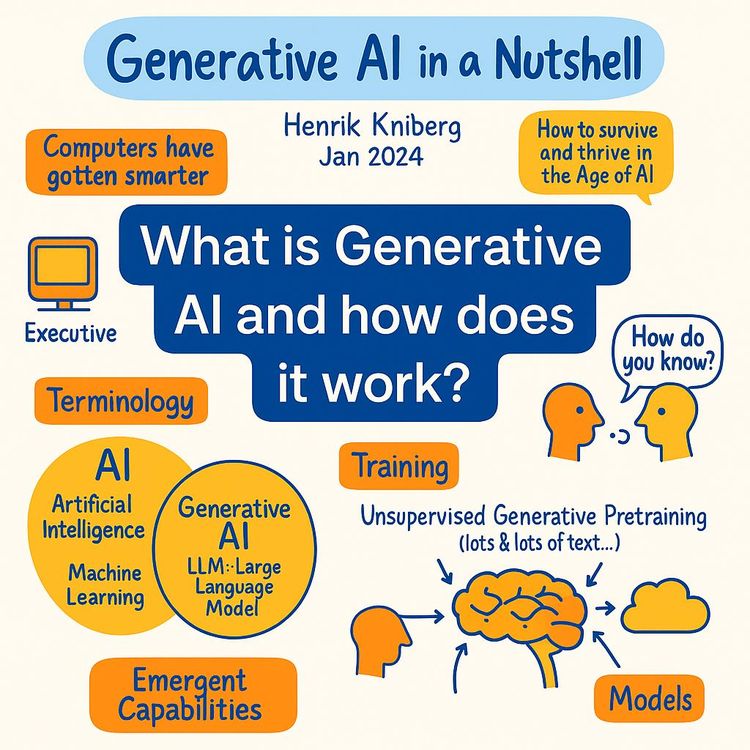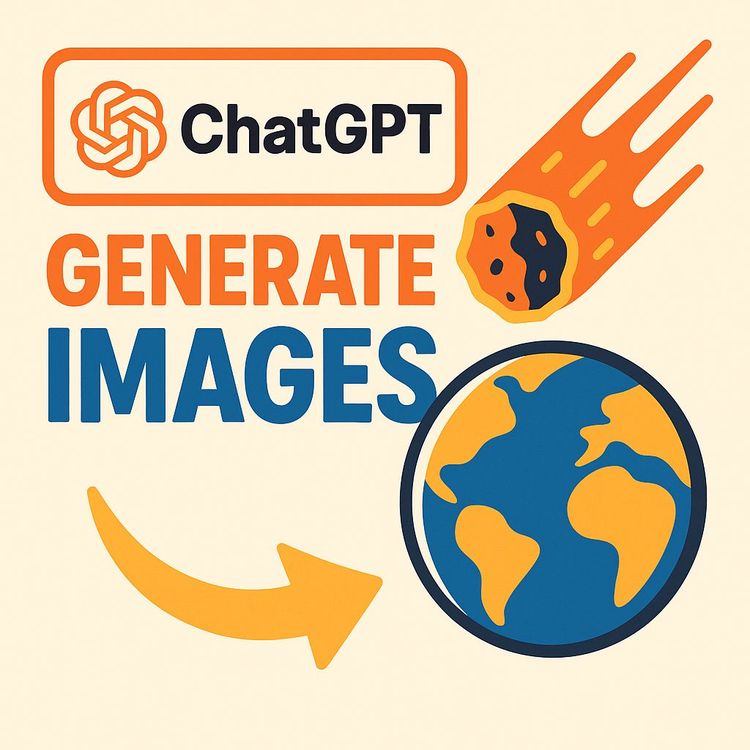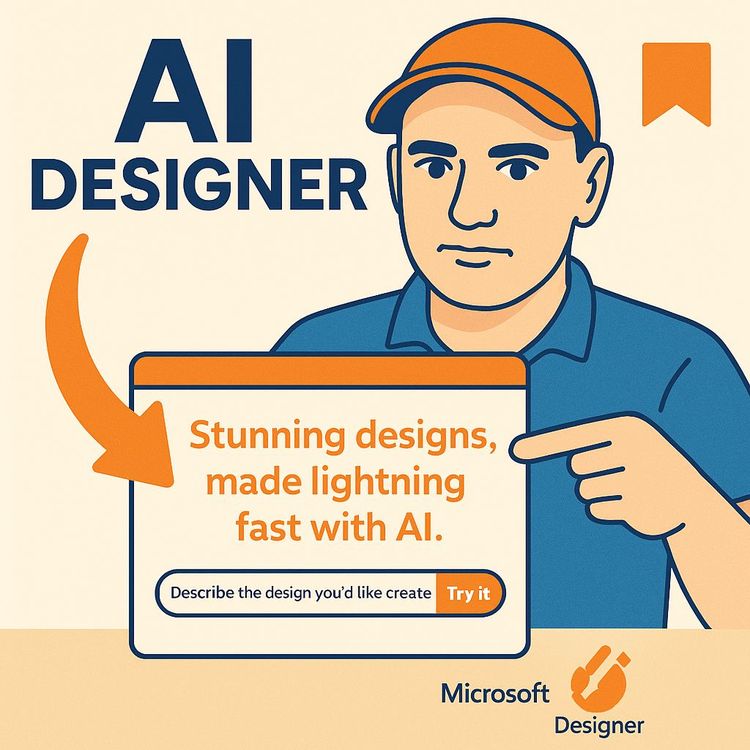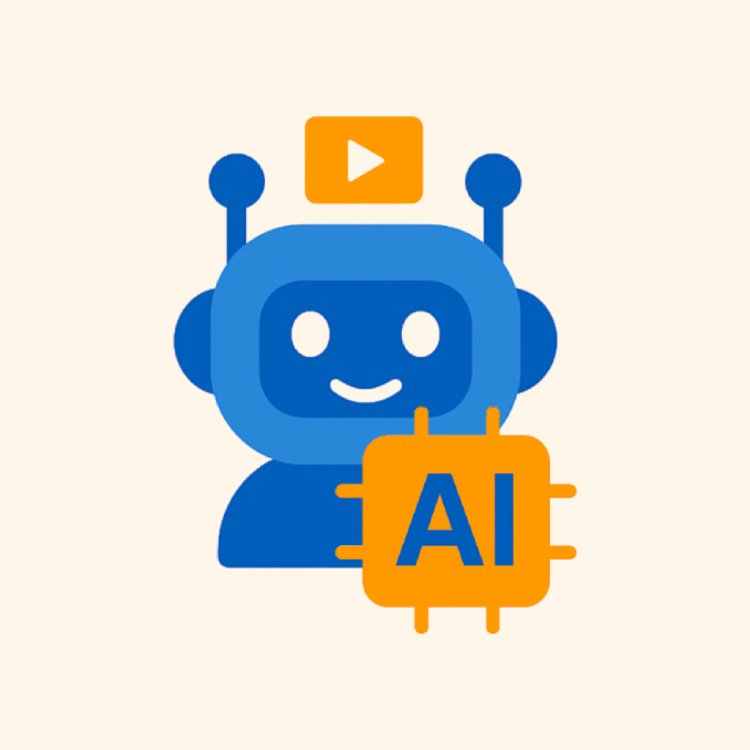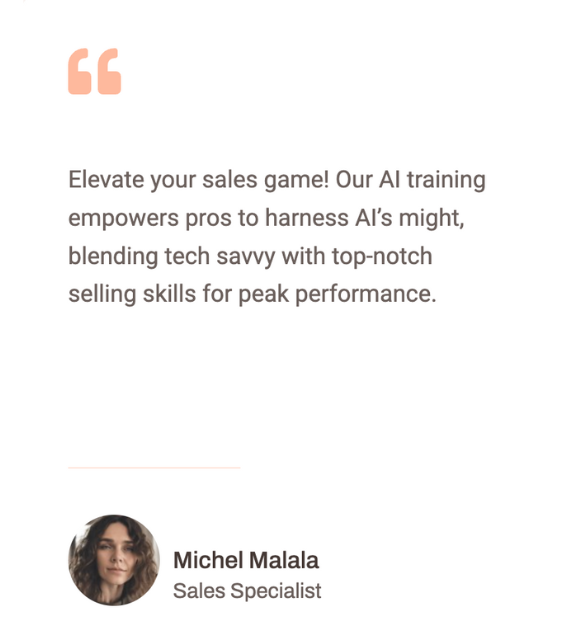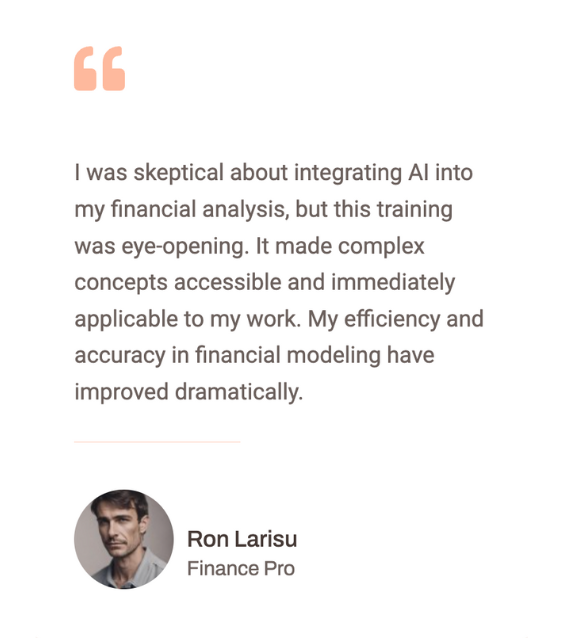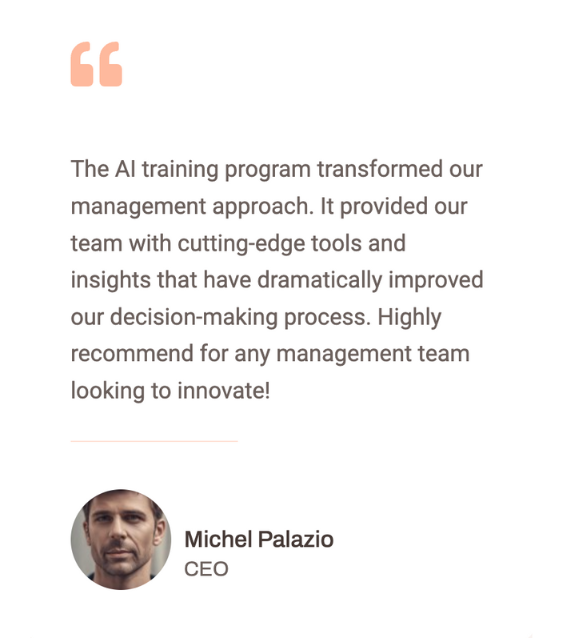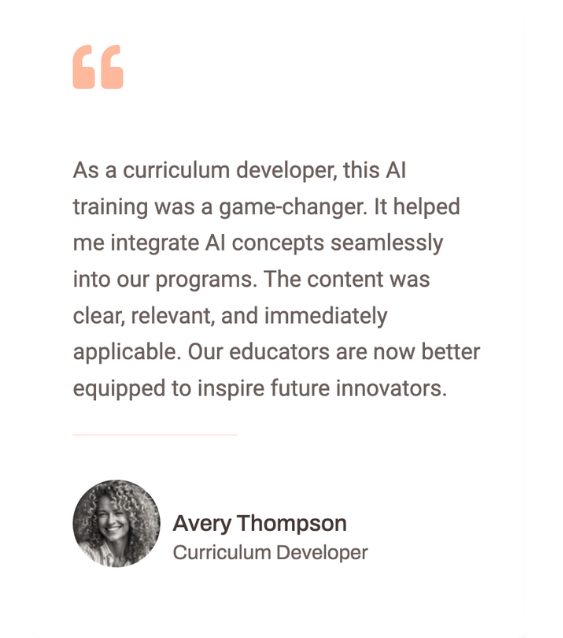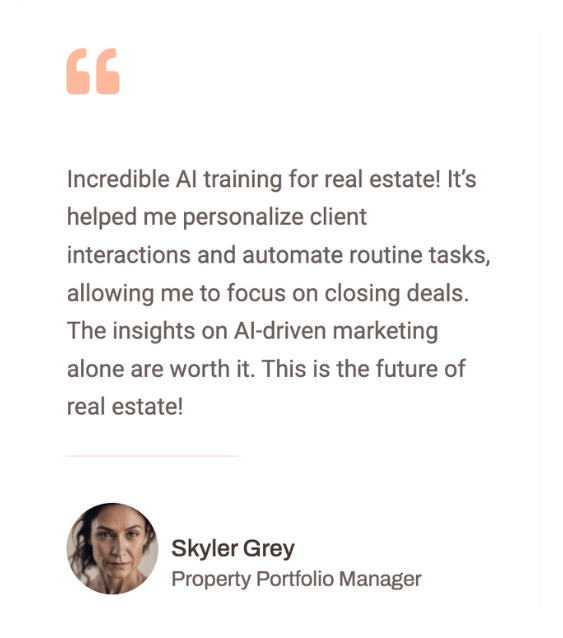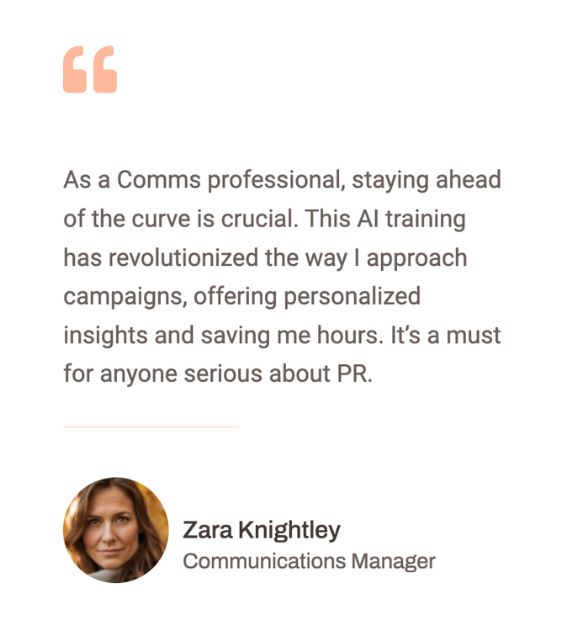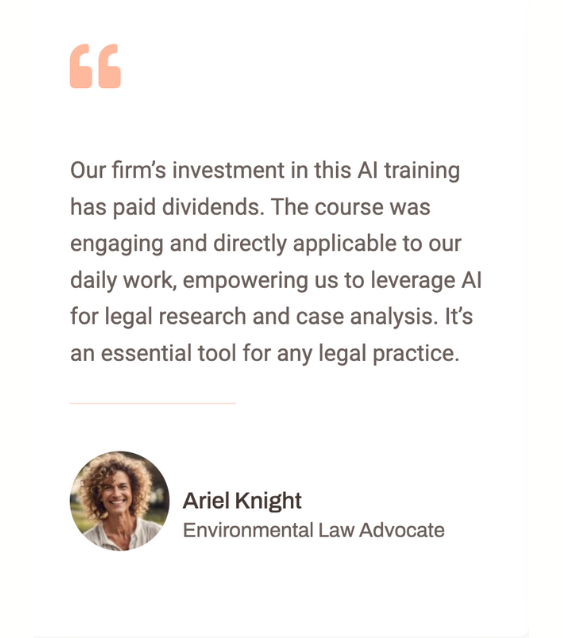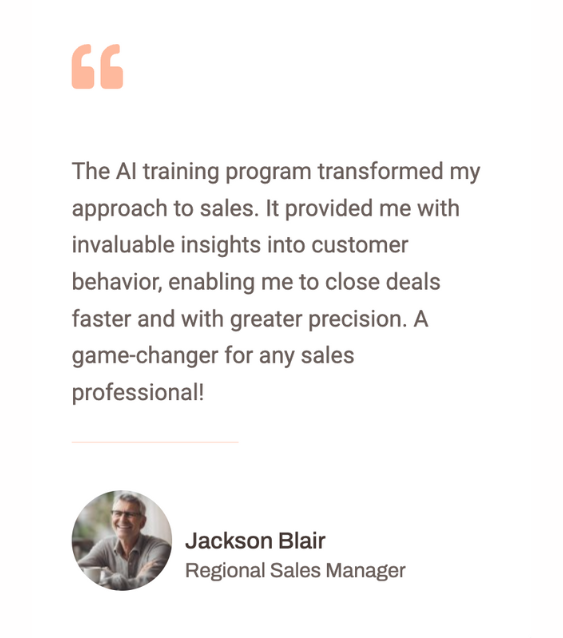Video Course: AI & Data Science in Hospitality and the Future
Dive into the transformative world of AI and Data Science in hospitality. This course offers insights into enhancing customer experiences and operational efficiencies, preparing you for a future where personalization and data-driven decisions are key.
Related Certification: Certification: AI & Data Science Applications in Hospitality Innovation
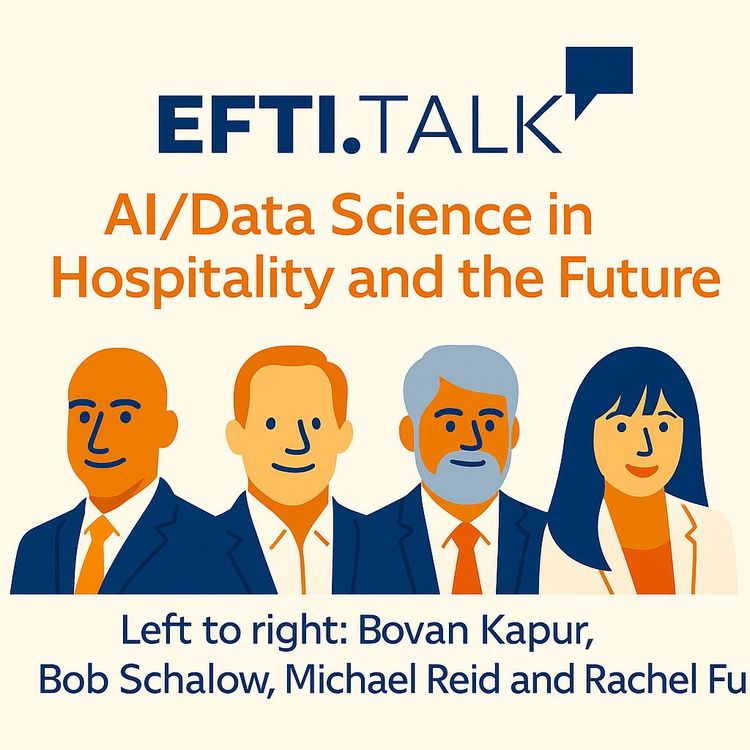
Also includes Access to All:
What You Will Learn
- How AI and data science reshape hospitality operations and guest experience
- Predictive modeling for demand forecasting and dynamic pricing
- Integrating and mining data from bookings, delivery apps, and POS
- Implementing AI tools like chatbots and personalized recommendation engines
- Robotics and automation use-cases for hotels and restaurants
- Ethical, privacy, ROI, and change-management considerations
Study Guide
Introduction
The hospitality industry, a cornerstone of global economic activity, is undergoing a transformative phase powered by the integration of Artificial Intelligence (AI) and Data Science. This course, "Video Course: AI & Data Science in Hospitality and the Future," aims to equip you with a comprehensive understanding of how these technologies are reshaping the landscape of hospitality. From enhancing customer experiences to optimizing operational efficiencies, the potential applications of AI and Data Science are vast and varied. This course will guide you through the current state of AI adoption, explore future possibilities, and highlight the skills necessary for professionals in this evolving field.
Why is this valuable? Understanding AI and Data Science in hospitality is crucial for staying competitive and innovative in a market that increasingly values personalization, efficiency, and data-driven decision-making.
Current State of AI Adoption in Hospitality
AI adoption in the hospitality industry is still in its infancy, particularly in restaurant operations. As Bob Schalow from Jack in the Box notes, the focus is primarily on consumer analytics and machine learning to identify broader trends. For instance, AI is used to analyze customer data to tailor marketing strategies and improve service delivery. However, there is significant room for growth, especially in integrating AI into daily operations like inventory management and staff scheduling.
Practical Application: Consider a restaurant chain that uses AI to predict peak hours, allowing for better staff allocation and reduced wait times for customers.
In integrated resorts such as casinos, AI has a longer history of application, particularly in predictive modeling. Pavan Kapur from Caesars Entertainment highlights how predictive models and machine learning algorithms are core to customer valuation and offering premium experiences. These models help determine which customers are likely to spend more, allowing for targeted promotions and personalized service offerings.
Practical Application: Imagine a casino using AI to analyze guest behavior and preferences, offering personalized room upgrades or dining experiences to high-value guests.
Bridging Historical Data and Future Prediction
A significant challenge in the hospitality industry is the reliance on historical data for decision-making. This approach lacks the adaptability and predictive capabilities that AI can offer. As Schalow points out, historical data might not account for unexpected events like hurricanes, which can drastically affect sales and operations.
Practical Application: AI can be used to incorporate real-time data, such as weather forecasts or local events, to adjust staffing levels and inventory orders dynamically.
In contrast, Caesars Entertainment has successfully leveraged predictive models to anticipate customer needs and optimize resource allocation. By integrating real-time data with historical trends, they can offer more accurate predictions and enhance customer satisfaction.
Practical Application: For example, using AI to predict hotel occupancy rates allows for dynamic pricing strategies, maximizing revenue during high-demand periods.
The "Who Has the Data?" Question
Data ownership and access are critical issues in the hospitality industry. Businesses often rely on third-party platforms like delivery apps and online travel agencies, which can complicate data utilization. The question of who owns customer data—whether it's the restaurant, the delivery service, or the booking platform—affects how businesses can leverage this information.
Practical Application: A restaurant might partner with a delivery app to access customer data, using it to refine their menu offerings based on popular items.
Efficient data mining is essential for making timely and effective business decisions. For instance, integrating data from various sources can provide a holistic view of customer preferences, enabling more personalized marketing and service strategies.
Practical Application: A hotel chain could use data from multiple booking platforms to tailor loyalty programs, offering personalized rewards based on guest preferences and booking history.
Disruptive Potential of AI
AI is proving to be a disruptive force in the hospitality industry, particularly through applications like AI-powered chatbots and mobile apps. At Jack in the Box, their app learns customer preferences, facilitating smarter selling and enhancing the ordering experience. This mirrors trends in other industries, such as airline check-ins and grocery self-service.
Practical Application: An AI-driven app could suggest meal combinations based on previous orders, increasing customer satisfaction and sales.
Caesars Entertainment employs an AI chatbot named IVY to handle guest queries and requests, reducing reliance on live agents and improving response times. This technology enhances convenience and operational efficiency, allowing staff to focus on more complex tasks.
Practical Application: Guests can use the chatbot to request additional room amenities or make dining reservations, streamlining the service process.
Robotics in Hospitality
While not widely implemented yet, robotics is seen as a future trend in hospitality. The potential for robotics in areas like room service delivery and automated food preparation is recognized, especially in addressing labor shortages. However, the adoption of robotics depends on factors like cost-benefit analysis and task complexity.
Practical Application: A hotel might use robots for delivering room service, reducing the need for human staff and increasing efficiency.
Robotics is expected to play a larger role in increasing efficiency and handling labor-intensive jobs in the future. For instance, automated food preparation systems could streamline kitchen operations, allowing chefs to focus on more creative tasks.
Practical Application: A restaurant could implement a robotic system for preparing salads or other simple dishes, freeing up human staff for more complex culinary tasks.
AI's Role During and After the Pandemic
The COVID-19 pandemic has accelerated the adoption of AI in hospitality. AI-powered tools have facilitated the shift towards digital ordering and third-party delivery, accommodating social distancing measures. For example, Jack in the Box used AI to enhance their app-based ordering system, improving customer convenience and safety.
Practical Application: AI-driven analytics could help restaurants adjust their menus based on changing consumer preferences during the pandemic.
As the industry recovers, AI will continue to be vital for analyzing evolving consumer behavior and optimizing pricing strategies. Caesars Entertainment used machine learning algorithms to manage hotel room demand, adapting to the volatile market conditions.
Practical Application: AI can assist in developing dynamic pricing models, offering discounts during low-demand periods to attract more guests.
The Evolving Customer Experience
AI is transforming the customer experience in hospitality by enabling personalization. Businesses can tailor offerings based on individual preferences and the reason for the visit. For instance, Caesars Entertainment uses AI to customize guest experiences, offering personalized dining recommendations and entertainment options.
Practical Application: An AI system could analyze a guest's past visits to suggest activities or dining options that match their preferences.
Jack in the Box's app personalizes the ordering process, adapting to customer preferences and suggesting relevant items. This level of personalization enhances customer satisfaction and loyalty, ultimately driving increased access to services.
Practical Application: The app might offer personalized discounts or promotions based on a customer's order history, encouraging repeat business.
Skills for Future Hospitality Professionals
As AI and Data Science become integral to hospitality, future professionals need to develop relevant skills. Technical skills like data analytics and coding are essential, but so are interpersonal and leadership abilities. Bob Schalow emphasizes the importance of blending technical knowledge with the ability to communicate and collaborate effectively.
Practical Application: Hospitality graduates might benefit from courses in data analysis and technology, alongside training in communication and team management.
Pavan Kapur highlights the need for skills in coding and business translation, enabling professionals to turn data insights into actionable business outcomes. This requires a balance of technical and soft skills, ensuring that technology enhances rather than replaces human capabilities.
Practical Application: Graduates could engage in internships that provide hands-on experience with AI tools, developing both technical and interpersonal skills.
Ethical Considerations: The "Creepy Factor"
The ethical implications of AI, particularly concerning data privacy and personalisation, are important considerations. The "Creepy Factor" refers to the potential for AI to become overly intrusive, making customers uncomfortable. Businesses must find a balance between personalization and privacy, ensuring that AI enhances rather than detracts from the customer experience.
Practical Application: Implementing clear privacy policies and obtaining customer consent for data use can help mitigate ethical concerns.
It's crucial to use AI in a way that respects customer privacy and fosters trust. For instance, offering customers the option to opt-out of certain data collection practices can enhance transparency and build loyalty.
Practical Application: A hotel might provide guests with the ability to customize their privacy settings, controlling how their data is used for personalization.
Challenges in AI Implementation
Implementing AI in hospitality comes with challenges, such as securing senior management buy-in and demonstrating clear return on investment. The costs associated with AI solutions can be significant, requiring businesses to carefully evaluate the benefits and potential risks.
Practical Application: Developing a clear business case that outlines the expected ROI from AI investments can help secure management support.
Translating complex data analysis into practical operational strategies is another challenge. Businesses need to ensure that AI insights are actionable and lead to tangible improvements in performance.
Practical Application: Creating cross-functional teams that include both technical and operational experts can facilitate the implementation of AI-driven strategies.
The Balance Between AI and the Human Touch
While AI offers significant efficiencies, the human element remains central to hospitality. AI is seen as a tool to augment human capabilities, not replace them entirely. The goal is to enhance the customer experience by combining the strengths of both AI and human interaction.
Practical Application: AI can handle routine tasks, freeing up staff to focus on providing personalized service and building relationships with guests.
Maintaining the human touch is crucial for service, leadership, and problem-solving. AI should be used to support and empower staff, enabling them to deliver exceptional service.
Practical Application: Training programs that emphasize the complementary roles of AI and human interaction can help staff adapt to new technologies.
Conclusion
By completing this course, you now have a comprehensive understanding of how AI and Data Science are transforming the hospitality industry. From enhancing customer experiences to optimizing operations, these technologies offer immense potential for innovation and growth. As you apply these skills in your professional journey, remember the importance of thoughtful implementation, ethical considerations, and the enduring value of human interaction. Embrace AI as a tool to augment your capabilities, and you'll be well-equipped to navigate the future of hospitality with confidence and creativity.
Podcast
There'll soon be a podcast available for this course.
Frequently Asked Questions
Welcome to the FAQ section for the 'Video Course: AI & Data Science in Hospitality and the Future'. This resource is designed to answer common questions from both beginners and seasoned professionals interested in the intersection of AI, data science, and the hospitality industry. Our goal is to provide practical insights, clarify complex concepts, and explore the future potential of AI in hospitality. We hope this FAQ will serve as a valuable guide as you navigate the evolving landscape of AI and data science.
1. What are the initial impacts of AI and Machine Learning in the hospitality industry, particularly in restaurant and integrated resort settings?
AI and machine learning are revolutionising consumer analytics in the restaurant sector by understanding customer behaviour and streamlining processes. Operational decisions, like managing labour and food costs, still depend heavily on historical data. Integrated resorts, such as casinos, have long used predictive models for customer valuation and premium experiences. There's a growing need for models that incorporate real-time and external data for better forecasting and decision-making.
2. How are hospitality businesses leveraging data, and what are the challenges in accessing and utilising it effectively?
Hospitality firms use both internal and external data to make informed decisions. Internal data aids location-specific strategies, while larger datasets offer insights into consumer preferences. A major challenge is data ownership and access: determining who controls customer perceptions, order history, and preferences. Efficiently mining this data to make timely, effective business decisions remains a significant hurdle.
3. In what ways is AI proving to be disruptive in the hospitality industry, as seen in the experiences of Jack in the Box and Caesars Entertainment?
AI-powered applications and chatbots are transforming customer interactions. Jack in the Box's app learns preferences, facilitates ordering, and uses geo-fencing for order preparation. Caesars Entertainment's AI chatbot, IVY, handles guest queries efficiently, reducing reliance on live agents and improving response times. These technologies enhance convenience and operational efficiency.
4. What is the current state and future potential of robotics in the restaurant and hotel sectors?
While robotics is not extensively used by Jack in the Box or Caesars Entertainment, its potential is recognised, particularly for room service delivery and automated food preparation. Adoption depends on factors like labour shortages, cost-benefit analysis, and task complexity. Robotics is expected to increase efficiency and handle labour-intensive jobs in the future.
5. How has AI assisted hospitality companies in responding to the challenges posed by the COVID-19 pandemic, and what role might it play in the recovery?
AI was crucial in adapting to pandemic conditions. For quick-service restaurants like Jack in the Box, AI tools facilitated shifts to third-party delivery and app-based ordering. Caesars Entertainment used machine learning for price elasticity to manage hotel room demand. As the industry recovers, AI will remain vital for analysing consumer behaviour and optimising pricing.
6. Is an understanding of AI and data analytics becoming a necessary skill for employees in the hospitality industry, beyond just IT or analytical roles?
While frontline employees may not need deep AI knowledge, awareness of AI-driven applications is increasingly important. Restaurant staff should understand mobile ordering apps, and hotel staff can use AI recommendations to enhance guest experiences. Practical application and user experience of AI tools are the focus, though a foundational understanding of technology and data analysis is valuable for future leaders.
7. How is AI being used to enhance the customer experience and potentially drive increased access to services in the hospitality sector?
AI enables personalised and efficient customer experiences. Caesars Entertainment uses AI to tailor offerings based on past behaviour and preferences. Jack in the Box's app personalises ordering and offers. AI helps businesses understand customer needs more deeply, leading to increased satisfaction and loyalty.
8. Looking ahead, what are some of the most exciting future applications of AI in hospitality, and what skills should future hospitality graduates be developing?
Future AI applications include guiding property design based on predicted preferences and automating data analysis in restaurants. Skills for future graduates include data analytics, technology literacy, strong communication, and the ability to translate data insights into business results. Practical experience through internships is crucial for developing essential people skills.
9. What are some common misconceptions about AI in the hospitality industry?
Many believe AI will replace human jobs, but it is more likely to augment human capabilities. AI can handle repetitive tasks, allowing employees to focus on more complex, customer-focused roles. Another misconception is that AI implementation is costly and complex; however, many scalable solutions are available that can be tailored to specific business needs.
10. What are the challenges of implementing AI in hospitality businesses?
Challenges include data privacy concerns, integration with existing systems, and ensuring staff are trained to use AI tools effectively. Additionally, achieving senior management buy-in is crucial for successful implementation. Overcoming these challenges requires clear communication of AI's benefits and potential ROI.
11. How can hospitality companies balance personalisation with privacy concerns?
Companies should be transparent about data collection practices and provide options for customers to control their data. Implementing strong data security measures and ensuring compliance with privacy regulations is essential. Balancing personalisation with privacy requires a focus on building trust with customers.
12. How is AI changing customer interaction in hospitality?
AI is enabling more personalised and efficient interactions. Chatbots can handle routine inquiries, freeing staff to focus on complex issues. AI-driven recommendations enhance customer experiences by offering tailored suggestions. This shift towards AI-driven interaction can improve customer satisfaction and loyalty.
13. How is AI used for forecasting in the hospitality industry?
AI uses predictive models to forecast demand, optimise pricing, and manage inventory. By analysing historical and real-time data, AI can identify patterns and trends, enabling more accurate predictions. This capability is particularly valuable for revenue management and operational planning.
14. What training is necessary for hospitality staff to effectively use AI tools?
Training should focus on the practical application of AI tools, such as using mobile apps and chatbots. Staff should understand how AI can enhance customer experiences and improve efficiency. Ongoing training and support can help employees stay updated on the latest AI developments and applications.
15. What are the ethical considerations of using AI in hospitality?
Ethical considerations include data privacy, the potential for bias in AI algorithms, and the impact on employment. Companies should prioritise ethical AI practices, such as ensuring transparency, fairness, and accountability in AI systems. Addressing these considerations is crucial for maintaining trust and credibility.
16. How does AI influence decision-making in hospitality businesses?
AI provides data-driven insights that enhance decision-making. By analysing customer data, AI can identify trends and opportunities, informing strategies for marketing, pricing, and service delivery. This data-driven approach can lead to more effective and efficient business decisions.
17. Can AI provide a competitive advantage in the hospitality industry?
Yes, AI can offer a significant competitive advantage by improving efficiency, personalising customer experiences, and enabling data-driven decision-making. Early adopters of AI technology can differentiate themselves by offering superior service and operational excellence, attracting and retaining more customers.
18. How might robotics impact the hospitality workforce?
Robotics can handle repetitive and labour-intensive tasks, potentially reducing the need for certain roles. However, this shift can also create new opportunities for employees to focus on customer service and experience. The key is to balance automation with human interaction to enhance overall service quality.
19. What future trends in AI should hospitality businesses be aware of?
Future trends include the increased use of AI for personalisation, predictive analytics, and operational efficiency. The integration of AI with other technologies, such as IoT and blockchain, can further enhance capabilities. Staying informed about these trends can help businesses remain competitive and innovative.
20. What factors should be considered when investing in AI solutions for hospitality?
Consider factors such as the specific business needs, the scalability of AI solutions, and the potential ROI. It's also important to assess the integration with existing systems and the ease of use for staff. A well-planned AI investment can lead to significant operational and customer experience improvements.
Certification
About the Certification
Show the world you have AI skills by mastering practical data science applications tailored for hospitality. This certification spotlights your expertise in leveraging innovation to enhance guest experiences and drive business growth.
Official Certification
Upon successful completion of the "Certification: AI & Data Science Applications in Hospitality Innovation", you will receive a verifiable digital certificate. This certificate demonstrates your expertise in the subject matter covered in this course.
Benefits of Certification
- Enhance your professional credibility and stand out in the job market.
- Validate your skills and knowledge in cutting-edge AI technologies.
- Unlock new career opportunities in the rapidly growing AI field.
- Share your achievement on your resume, LinkedIn, and other professional platforms.
How to complete your certification successfully?
To earn your certification, you’ll need to complete all video lessons, study the guide carefully, and review the FAQ. After that, you’ll be prepared to pass the certification requirements.
Join 20,000+ Professionals, Using AI to transform their Careers
Join professionals who didn’t just adapt, they thrived. You can too, with AI training designed for your job.

